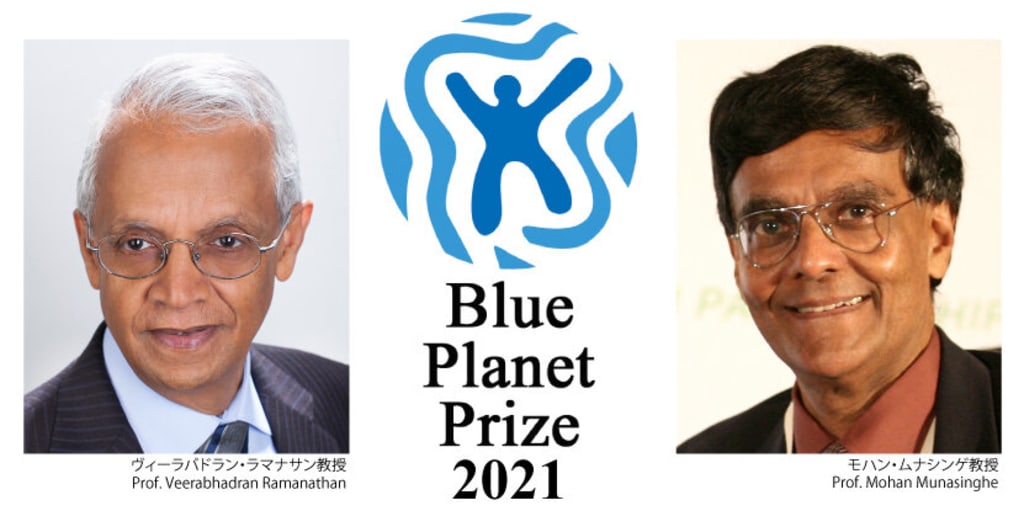
Manabe's work laid the foundation for the development of existing climate models. Klaus Hasselmann created a model that links climate with climate and thus provided the basis for reliable weather models, as the climate changes naturally and is chaotic. He has shown that changes in weather conditions can be defined as changes in noise in stochastic weather models.
They take some complicated programs from computer models. Such models can be used to deal with the possible effects of global warming. One of Manabe's simple models was a single column in the space.
Part of the 2021 Nobel Prize in Physics goes to Giorgio Parisi, 73, of the University of Sapienza in Italy, for his work in proving the chaos associated with the atomic movement in the earth. The Royal Swedish Academy of Sciences has announced that half of the award goes to astronomers Syukuro Manabe of Princeton University and Klaus Hasselmann from the Max Planck Institute for Meteorology in Hamburg for their work in mimicking the earth's climate and predicting global warming. The other part of the award goes to environmentalist Giorgio Parisi of the University of Sapienza in Rome for his work on understanding the disruptive power of degradation.
The 2018 economic award went to William Nordhaus, who developed a model that incorporates physical and economic climate models to measure the social impact of global warming. Scientific climate change has changed dramatically in recent years, but its foundations were laid centuries ago before the Nobel Prizes were first awarded in 1901.
John Wettlaufer of Yale University said John Wettlaufer of the Nobel Committee on Physics was Syukuro Manabe of Princeton University, left, whose work laid the foundation for climate modeling. Manages research is important in creating weather forecasts.
Manabe is one of the scientists behind the Geophysical Fluid Dynamics Laboratory (GFDL), the National Climate Research Laboratory, the joint project of Princeton University, and the National Oceanic and Atmospheric Administration (NOAA). In 1992 Manabe became the first recipient of the Blue Planet Prize - an award given to researchers who help solve global environmental problems selected by the Asahi Glass Foundation. Manabe says he describes the award as a Nobel Prize in natural science.
He received the Roger Revelle Award of the American Geophysical Union in 1993, the first of the Asahi Glass Foundation Blue Planet Award in 1992, the Medal Benjamin Medlin for Earth and Environmental Science from the Franklin Institute of Philadelphia in 2015, and many others. In 2018 Manabe was awarded the Crafoord Prize in Geoscience by Susan Solomon for her outstanding contributions to the field of space gas in the Earth's climate program.
Professor Munasinghe was awarded the Nobel Peace Prize in 2007 as vice-chair of the United Nations Intergovernmental Panel on Climate Change (IPCC) and became the first Sri Lankan to do so. He has participated in many international agreements on environmental development and sustainability, in particular the 2015 United Nations Development Program (SDGs) and the 2015 United Nations Framework Convention.
Andrew Limbong is the first black writer since Toni Morrison won the Nobel Prize in Literature in 1993, reports Andrew Limbong of NPR. In 2021, Paris will receive the Wolf Prize Award for its basic discovery of illegal programs in particle physics and statistical physics.
No black scientist - male or female - has received a single top prize in physics, chemistry, or medicine. Scientists in the field of science - meteorologists, chemists, neurologists - are working to solve some of the world's most complex problems. It is encouraging to know that the Award Committee has recognized many important concepts that were developed long ago and have been in use for almost fifty years.
Graduates of the Nobel Prize for Physiology or Medicine in 2021 have studied a variety of topics including modeling the changing climate, our body's response to such things as pain and heat, and the building blocks of active chemicals.
On Tuesday, three scientists who have begun unveiling the global climate crisis to lay the groundwork for the forthcoming global forecast will be awarded the Nobel Prize in Physics in 2021. The Nobel Peace Prize was awarded in 2007 by the Intergovernmental Panel on Climate Change, an international team of astronomers who became the former US vice president Al Gore.
Oppenheimer, Manabe, and other Princeton colleagues received the Nobel Prize for Physical Climate Modeling by the Nobel Committee in 2007; The Nobel Prize went to Al Gore and the Intergovernmental Panel on Climate Change (IPCC). James Hansen, director of astronomy and awareness at Columbia University's Earth Institute, said the Nobel Foundation had made the right decision by awarding Manabe a prize in place of Hasselman.
Manabe and Hasselman split the price of the earth's climate to measure variability and predict global warming. This year’s Nobel Prize winner in Physics, Klaus Hasselmann, helped build a subterranean work that paved the way for modern exploration of our environment. He was awarded half the Nobel Prize in Physics 2021 last week, the other half shared by Syukuro Manabe and Giorgio Parisi for their research on body systems.
Mohan Munasinghe, Senior Counselor in the Green Growth Knowledge Partnership (GGKP) was awarded the Blue Planet Prize 2021, the equivalent of the Nobel Prize for Environment, for his pioneering work in solving global sustainability problems. Sri Lankan Professor Munasekhe has revived a new concept of a sustainable, inclusive framework, environmental, economic, and social development framework linked to green inclusive growth (BIGG) and the Millennium Consumption Goals (MCG).





Comments
There are no comments for this story
Be the first to respond and start the conversation.